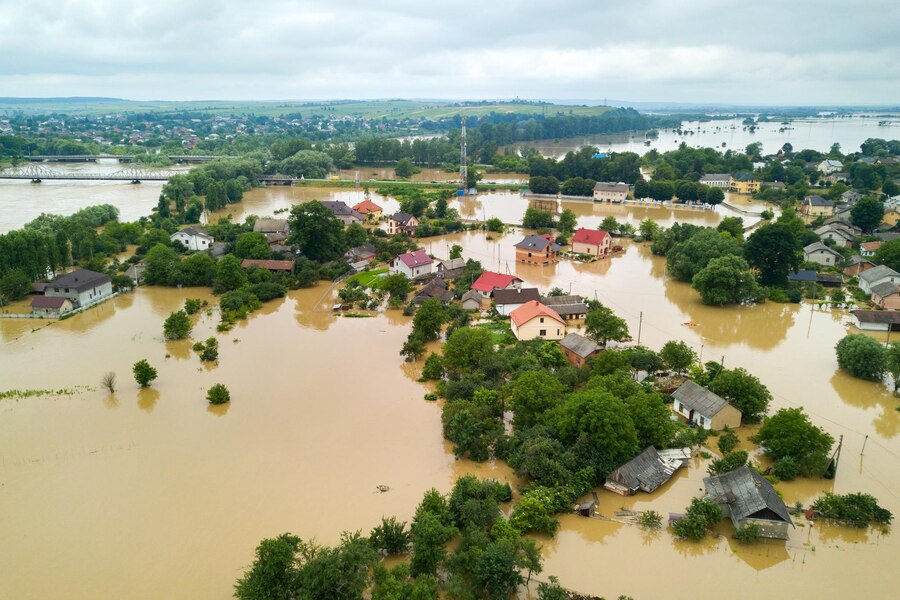Seeding climate adaptation innovation in vulnerable cities

Urban areas continue to face serious climate change impacts, especially increasing extreme heat and flooding. Over 4.4 billion people currently live in urban areas, and over 6 billion people will inhabit cities by 2045. Recently, over 750 million urban poor were deemed highly vulnerable to extreme heat. As climate change accelerates, cities urgently require localized solutions that strengthen resilience, particularly for lower-income communities.
Triggering Exponential Climate Action (TECA) was created to address this need. TECA is a venture-launching program assisting young entrepreneurs to create sustainable climate adaptation companies across the Global South. TECA connects the solutions, talent, and capital essential for building resilient cities.
Understanding promising climate adaptation spaces
A core TECA activity termed “waveseeding” convenes key local ecosystem players to determine high-potential climate adaptation innovation areas constituting the “Atlas of Opportunity”: areas where new ideas and tech-enabled solutions can make a major impact. Waveseeding also maps actors able to support budding ventures.
TECA has hosted waveseeding events in Santiago, Chile; Lagos, Nigeria; and Mumbai, India; revealing common innovation themes across these different global contexts:
- Infrastructure and materials: Solutions like upcycling plastic waste into construction materials or implementing nature-based designs are seen as important opportunities. Key challenges exist regarding high upfront costs and effectively collaborating with public sectors managing urban planning.
- Urban food systems: Innovations such as vertical farming, hydroponics, greenhouses, plus associated services around fertilizers, agro-processing, and climate-resilient storage and distribution are critically needed. Better connections between cities and rural food systems will also be required.
- Climate information services: Early warning systems, monitoring/evaluation platforms, and climate modeling tools are of extreme importance, yet currently struggle to achieve profitability. Potential innovation avenues exist around integrating climate data for applications in sectors like healthcare.
Cultivating the climate adaptation talent pipeline
Waveseeding has also identified several gaps within local talent pipelines:
- The need for climate adaptation resources for youth: We’ve seen that robust climate education and awareness raising is lacking, especially programming focused on informing entrepreneurial action suited for local climate hazards. Initiatives like TECAthons (hackathons for climate adaptation) could help catalyze youth engagement.
- A lack of support for climate entrepreneurs: Young founders require extensive leadership support alongside access to trusted partners and talent. Many juggle multiple income streams while starting ventures, limiting their capacity to focus and scale their startups. Adequate, patient grant funding enables dedication toward solving complex climate challenges.
- Fragmented ecosystems: Actor networks are siloed, hindering smooth flows between data providers, academia, support organizations, and investors. Climate adaptation merits tailored platforms fostering fluid stakeholder collaboration. Outreach focusing on women, marginalized populations, and lower-income groups also remains essential for diversifying the talent pipeline and compensating local knowledge.
Channeling funding and investment into solutions
Waveseeding further spotlighted needed shifts within investment landscapes:
- Building investors enthusiasm for climate adaptation solutions tailored to local contexts: Current funders often emphasize technology-centric mitigation solutions rather than locally-attuned adaptation innovations. While both types of innovation are needed, deepening knowledge around contextual vulnerability,political economy barriers, and sustainable business models related to climate resilience is key for scaling more investment in adaptation solutions. Platforms showcasing proofs-of-concept, such as this Gallery of Products for financial services for climate adaptation, could assist.
- Engaging non-traditional investors: Overlooked capital sources like faith based organizations and corporations directing corporate social responsibility (CSR) budgets could provide vital early financing. Exploring novel tools like climate bonds, decentralized autonomous organizations (DAOs), and blended early-stage equity also holds promise in expanding available funding.
Next steps for resilient cities
TECA waveseeding supplied critical insights for informing efforts that strengthen urban climate adaptation innovation ecosystems globally. Participants called for three main ecosystem-level actions to help scale climate adaptation innovation:
- Educate: Host hackathons and other relevant educational and upskilling events for youth with substantial outcomes (e.g. prizes or coaching) and sustainable engagement (e.g. fellowship programs like TECA).
- Connect: Formalize a network of trusted and reliable actors that can help fast-track entrepreneurs (e.g. CIFAR Alliance) at the local level and develop a digital engagement platform.
- Mobilize capital: With potential climate adaptation investors, co-create knowledge products that provide proof-of-concept for adaptation innovation and train corporate sustainability champions on key adaptation concepts.
Ultimately by linking solutions, talent and funding, TECA hopes to seed resilient and regenerative cities worldwide and provide promising livelihoods for vulnerable youth.

